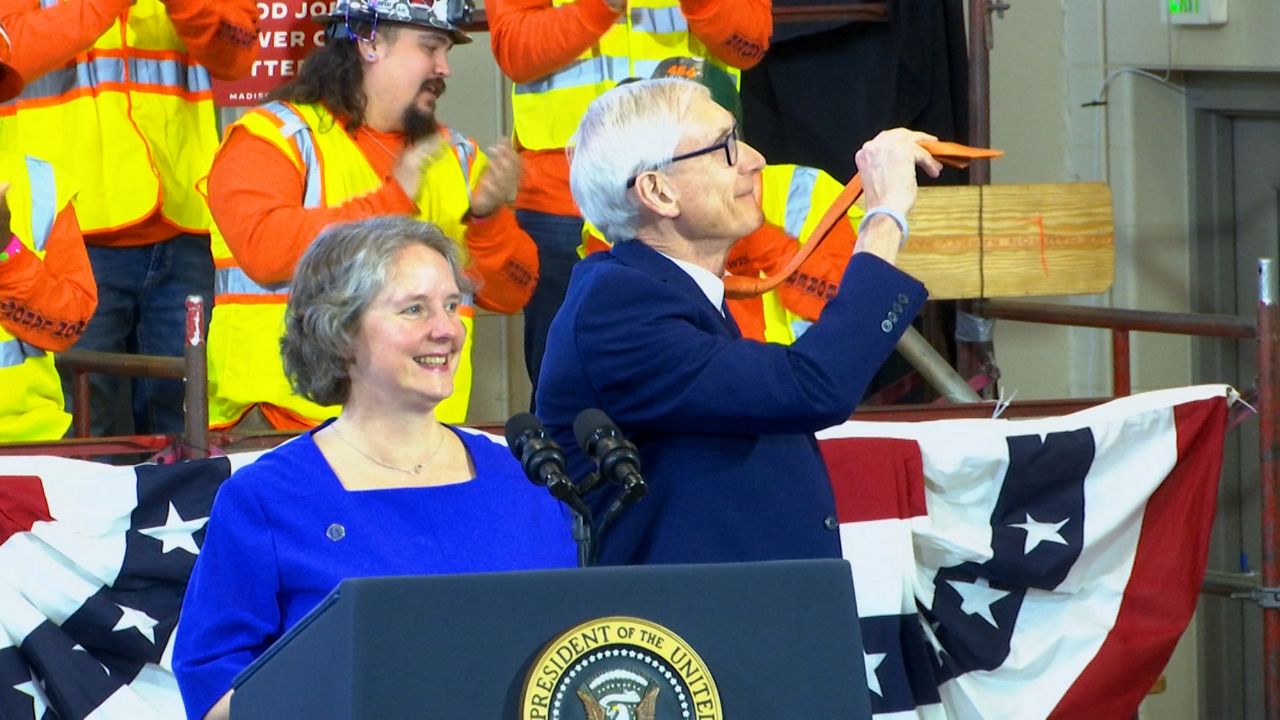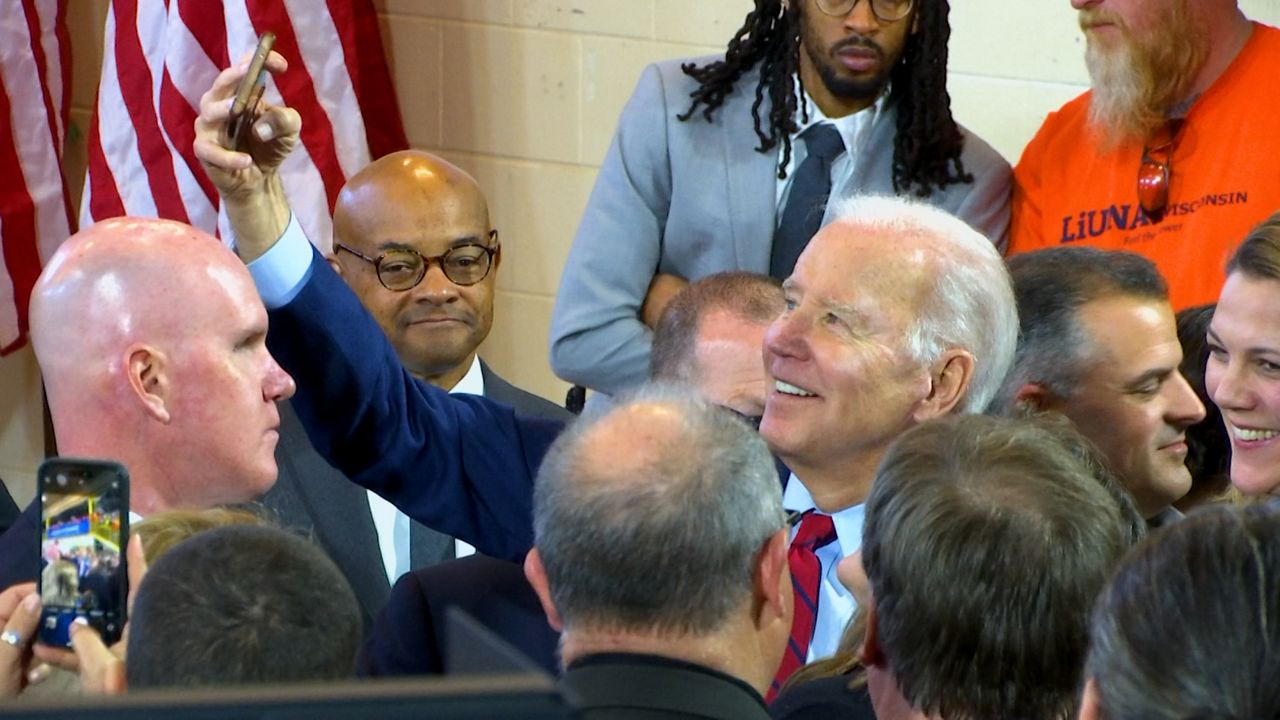DEFOREST, Wis. — President Joe Biden hit the road Wednesday to sell his priorities to the American people after Tuesday night’s State of the Union.
Biden, who made his first stop of a nationwide tour in Wisconsin, visited the Laborers’ International Union of North America (LiUNA) Training Center in DeForest to tout how his economic plan has created jobs.
Surrounded by a backdrop of union workers, Wednesday’s visit was reminiscent of the president’s last trip to Wisconsin when he stopped in Milwaukee for a Labor Day event.
However, unlike the last time, when Biden was trying to drum up support for a midterm election, he was instead focused on sharing success stories about what he referred to as his “blue-collar blueprint” for rebuilding America.
“Folks, I hate to disappoint [Republicans], but the Biden economic plan is working,” Biden said. “Wall Street did not build this country, the middle class built the country, and unions built the middle class.”
During the remarks, the president doubled down on his promise to protect social security and Medicare for the working class.
Biden was joined by local leaders who helped make his vision a reality on policies ranging from the American Rescue Plan to the Bipartisan Infrastructure Law and Inflation Reduction Act.

“After four presidents of both parties talking about investing the nation’s much needed infrastructure, it was Joe Biden that actually got it done,” Rep. Mark Pocan told the crowd.
Gov. Tony Evers thanked the president for supporting the state’s workforce as nearly 30 organizations across Wisconsin benefited from grants supported by $128 million in federal funds.
“Our economy is in the strongest position ever,” Evers said. "Unemployment is at a record low. Our state’s labor force participation is at [a] record high.”
Biden’s White House took credit for those accomplishments. According to the administration, companies have invested more than $4 billion in manufacturing across Wisconsin since Biden took office.
“At the port of Green Bay, we are helping turn an old water plant site into a new port terminal,” President Biden explained. “It’s going to create thousands of jobs overtime. This is a big deal. Just up the road in Columbia County, funds from the infrastructure bill are going to replace the Wisconsin River bridge.”

Wednesday’s visit wasn’t the first time the president made a trip to Wisconsin on the heels of the State of the Union.
Last March, Biden visited Superior to highlight investments in infrastructure. So far, $2.9 billion has been announced for the Badger State. Most of those funds will be used to improve roads, bridges and safety on the roadways.
Republicans, meanwhile, pointed to a report from the Congressional Budget Office that found the Inflation Reduction Act would have a “negligible effect” compared to what the president claimed.
“Biden’s first re-election campaign stop in Madison will do nothing to improve his standing with Wisconsin voters,” WisGOP Chairman Brian Schimming said in a statement. “Wisconsin households and businesses have faced crushing inflation, decreasing real wages, and increasing energy bulls for months and trying to buy votes with his inflationary spending and Green New Deal agenda isn’t the answer to helping Wisconsin families.”
The president was scheduled to visit Tampa, Florida on Thursday to promote efforts to lower health care costs.



